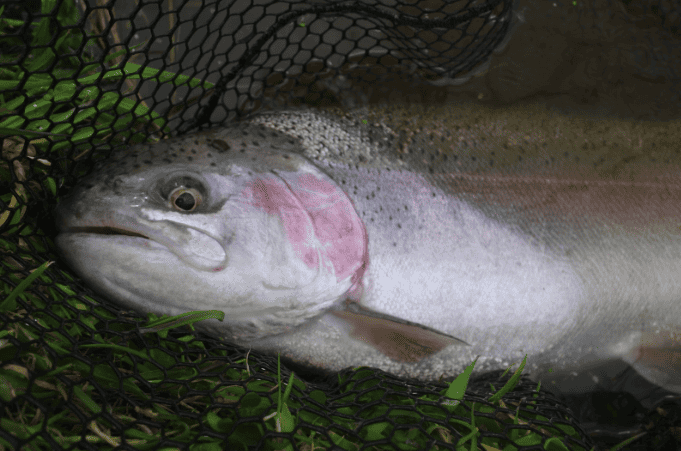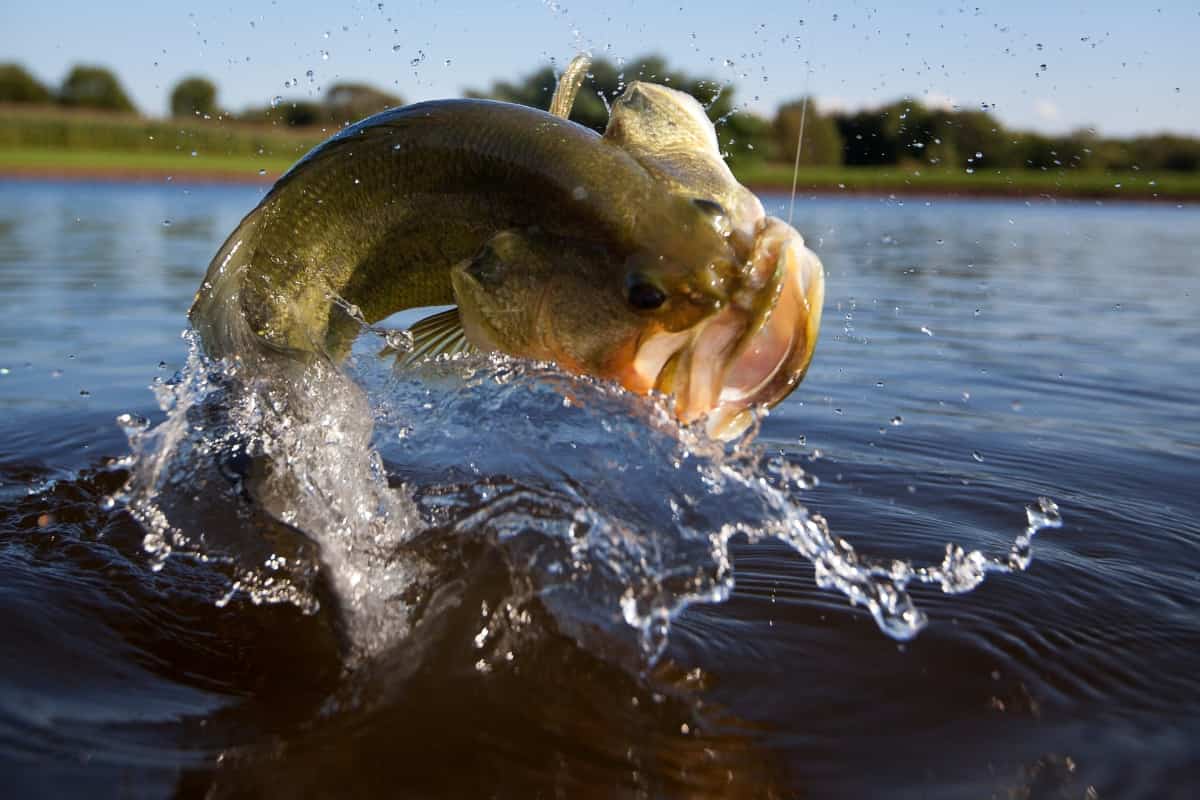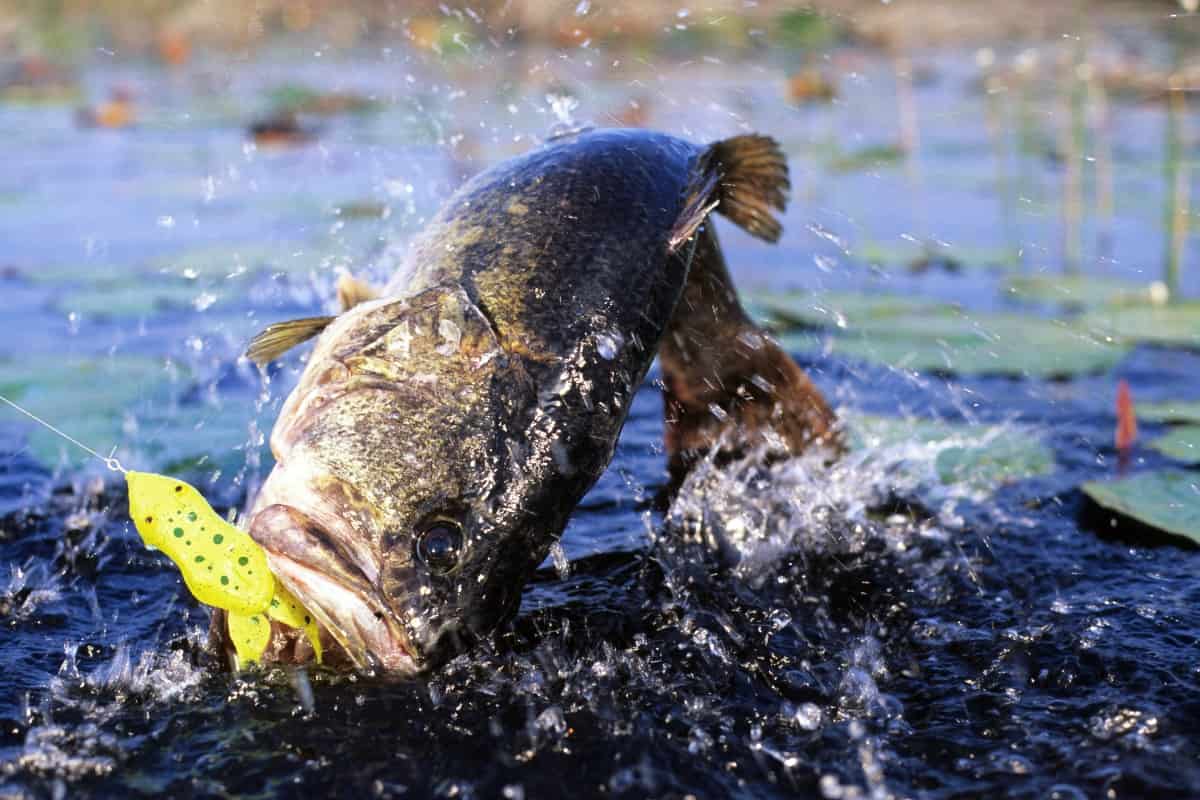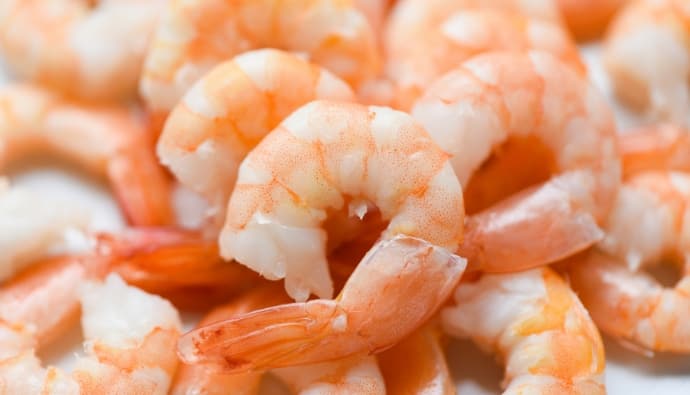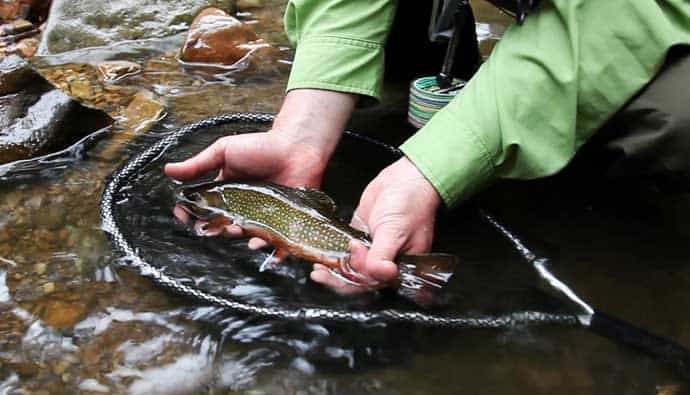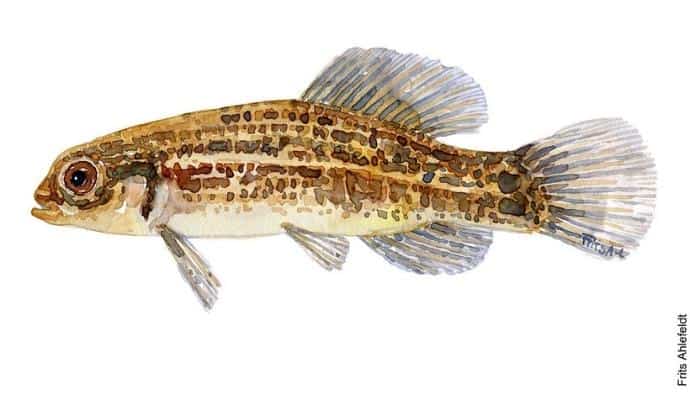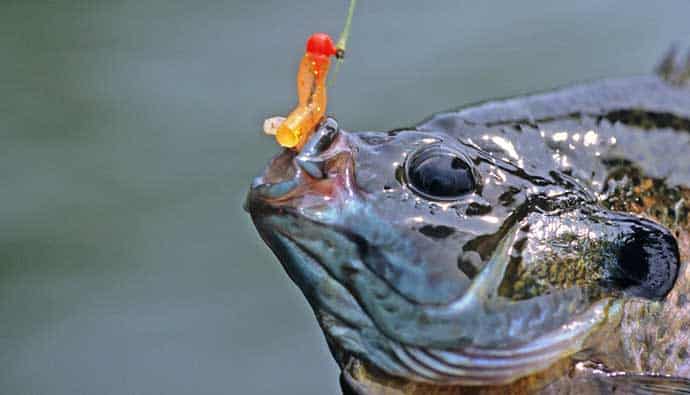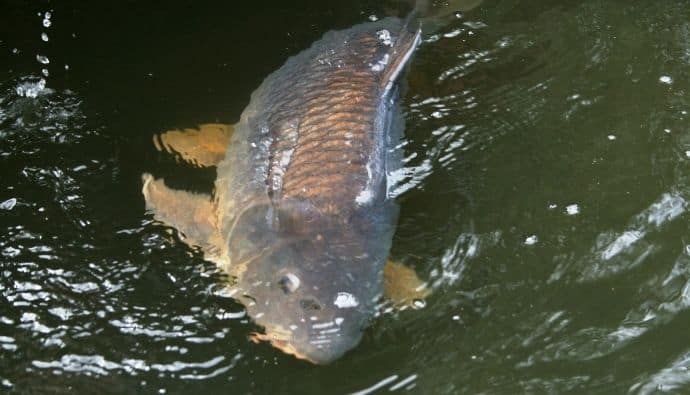Have you ever wondered why bass sometimes jump out of the water? The first time I saw it, I was shocked and made it a point to research why it happened when I got home. In this article, we’ll explore why they jump out of the water and how this knowledge can transform your fishing strategy.
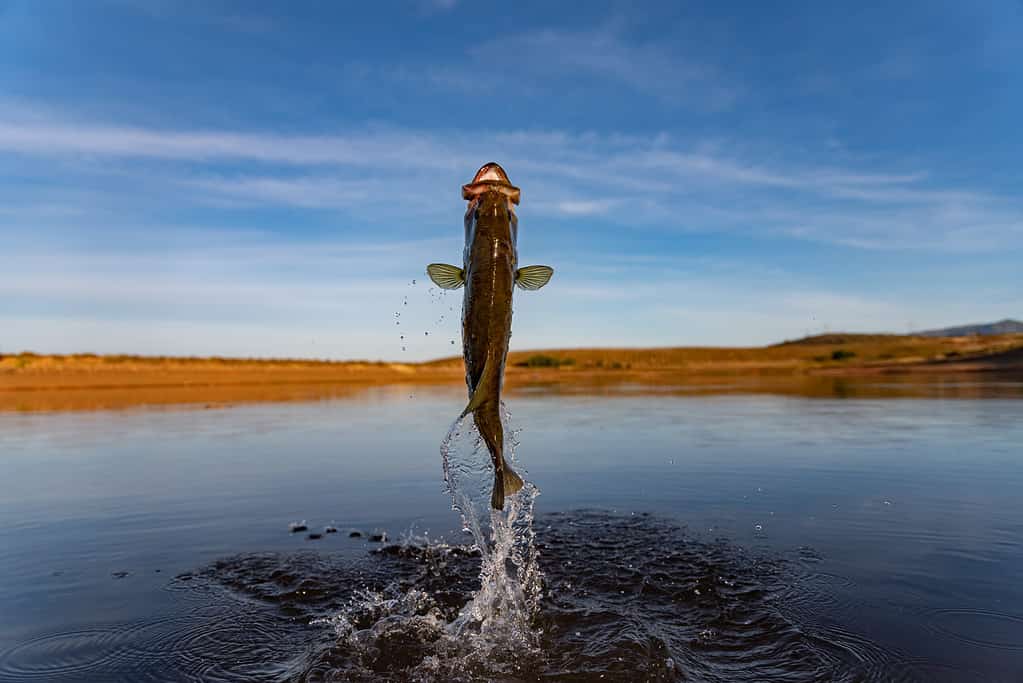
The Short Answer
When you see a bass jumping out of the water, it’s usually because it’s either trying to catch prey, shaking off a parasitic leech, or trying to dislodge a hook from a previous unsuccessful catch. Bass tends to jump more often during feeding times, usually in the early mornings or sunny days when visibility underwater is better.
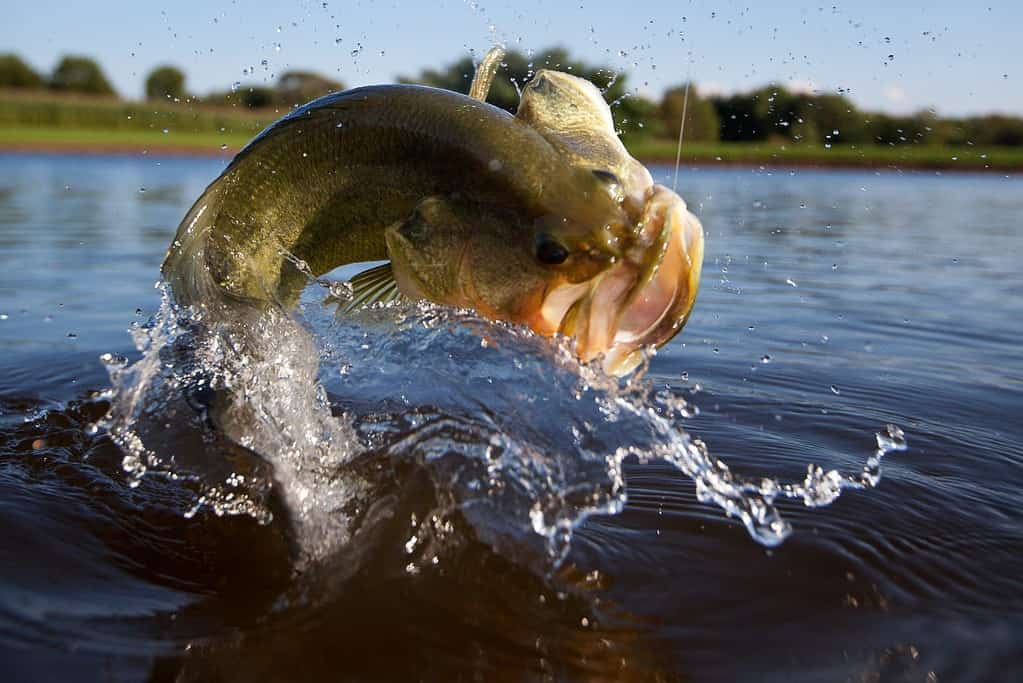
Why Bass Jump Out of the Water
While seeing a bass jump out of the water does increase your chances of catching one, it’s essential to use proper techniques like keeping the tip of your fishing rod close to the water for better control. And if you’d like to encourage more bass jumping, using topwater lures, taking advantage of feeding times, and employing the “pop and stop” technique can be quite effective.
There are a couple of main reasons for this interesting behavior, and both are closely tied to their survival instincts.
Hunting Food
One reason is all about food.
Just like us, bass have to eat, and sometimes their meals like to hang out just above the water’s surface. Insects like mayflies, dragonflies, and even small fish and frogs often find themselves in the perilous position of being a bass’s next meal. When a bass spots one of these tasty treats, it doesn’t just reach out – it launches itself out of the water with surprising speed and agility.
Imagine a popcorn kernel popping in a hot pan, that’s how quickly a bass can burst from the water! It’s a magnificent sight to behold, but also a vital part of the bass’s dinner routine.
Dislodging a Hook
On the other hand, if you’re an angler, you might have seen different types of bass jump after being hooked. This isn’t the bass being overly dramatic; it’s a clever survival strategy.
Bass have learned that a quick leap and shake can sometimes dislodge an unwelcome fishing hook. In their world, it’s like shaking off a bothersome bug. By jumping and thrashing, they create a force that might free them from the hook’s sharp point.
So whether they’re searching for a meal or trying to become not-the-meal, when you see a bass jumping out of the water, you’re getting a glimpse into their daily life-and-death struggles.
But don’t worry, understanding this behavior isn’t just fascinating, it’s also the first step to becoming a better angler. So, let’s explore how you can turn these bass acrobatics into a fishing advantage in the next section.
When Do They Jump?
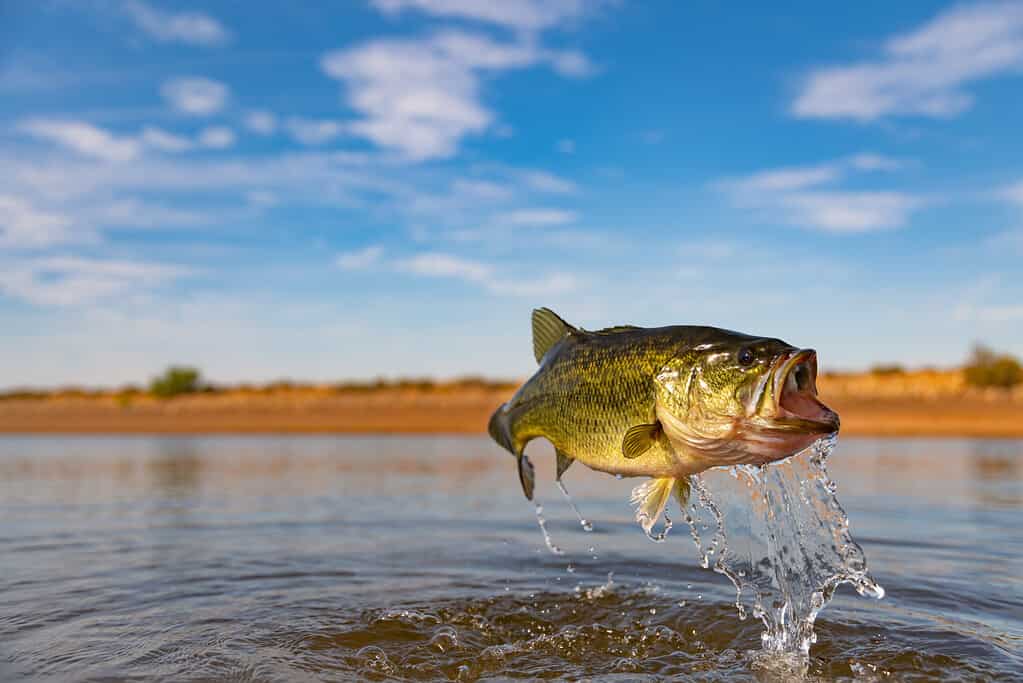
Knowing why bass jump out of the water is half the equation, but knowing when they’re most likely to perform this leap can be equally crucial. This knowledge could be the difference between a slow day on the water and landing that trophy catch!
Sunny Days
While you might think that bass prefer the cover of cloudy days or shadowy waters, you’d be surprised to know that they often perform their aerial acrobatics on sunny days.
Yes, just like us, they enjoy a good bit of sunshine! During these bright days, sunlight penetrates the water, illuminating their underwater world and making it easier for bass to search and spot potential meals near the surface.
Imagine yourself in a well-lit dining room, able to see and choose your food – that’s how bass feel on a sunny day.
Early Morning Feedings
Moreover, timing is everything in the world of bass fishing.
Bass are known to feed heavily in the early mornings. As the first light of the day creeps over the horizon, casting a beautiful glow on the water, bass are already on the hunt. They take advantage of the morning dim light and the abundance of breakfast options. Insects and smaller fish are active, making it a perfect time for bass to grab a quick meal by jumping out of the water early.
So next time you’re planning a fishing trip, consider setting your alarm for an early start!
In the world of bass fishing, timing and weather can significantly influence your success. But armed with the knowledge of why and when bass jump, you’re one step closer to mastering the art of fishing. Let’s move on to how you can use these insights to your advantage.
Can You Catch Bass Jumping Out of The Water?
So, you’ve seen a bass leap high out of the water, creating a splash that disrupts the mirror-like water surface. You might wonder if it’s the perfect time to cast your line and reel in a whopper.
Can you really catch bass when they’re jumping out of the water? The short answer is yes, but there are some things you should know.
When bass are jumping, they’re likely in an active state, hunting for food or trying to shake off an annoying hook. This heightened activity could mean they’re more likely to strike at a well-presented lure or bait.
Seeing a bass jumping means there’s at least one fish in the area, possibly more. This is a good sign you’re fishing in the right spot.
However, it’s essential to keep a few things in mind.
A bass that has just leapt into the air might be momentarily less likely to bite, especially if it was dislodging a hook. Also, remember that just because bass are active doesn’t mean they’ll go after any bait. They might be feeding on a specific type of food, and if your lure doesn’t match the other fish on the menu, they might not bite.
But don’t let this deter you. Seeing bass jumping out of the water is generally a good sign for anglers.
With the right techniques, which we will explore in the next sections, you can increase your chances of successfully reeling in a jumping bass. So, keep your eyes peeled for those large bass splashes!
How to Catch Bass Jumping Out of the Water
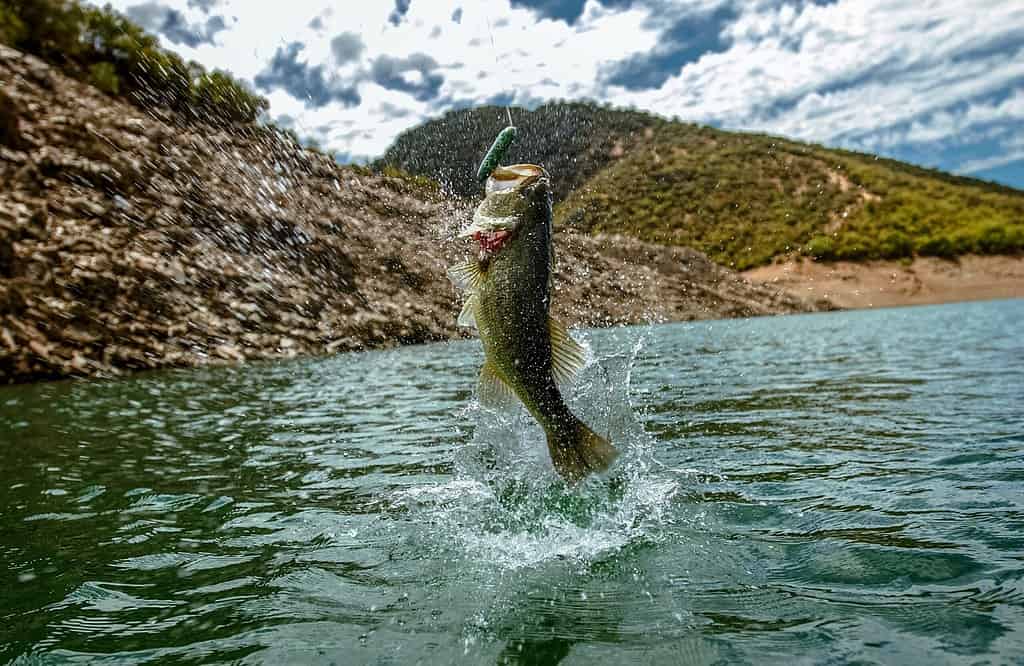
Watching a bass leap out of the water can be an adrenaline rush, especially if you’re an angler.
Your heart pounds, and your hands tighten on your rod, ready to reel in that prized catch. But how do you turn this thrilling moment into a successful catch? The secret to catching bass often lies in a simple technique: keeping the tip of your fishing rod near the water.
Keep Your Rod Tip Near the Water
When you see a bass jumping out of the water, it’s crucial to keep the tip of your fishing rod near the water’s surface. But why does this help? It’s all about maintaining control and being ready for a fight.
When a bass bites, it might attempt to shake free by jumping and thrashing.
If your rod tip is high in the air, a jumping bass has more slack to use to its advantage. More slack means more chances for the bass fish jump and to shake free. It’s a bit like giving a dog a long leash – it will have more room to wriggle around.
But if your rod tip is close to the water, you have a tighter line and more control over the situation.
When a bass jumps, you can quickly react, lowering your rod even further to maintain a tight line. It’s like holding onto or flying a kite during a gusty day – you need to keep a firm grip and be ready to adapt to the kite’s movements.
Remember, catching a jumping bass isn’t just about the strike; it’s also about what you do after the strike.
Keep your rod tip near the water, react quickly, and you’ll increase your chances of bringing in that big bass again. So next time you’re out on the water and you see a bass jumping, remember this technique, and get ready to reel in your prize catch!
How to Make Bass Jump or Come to the Surface
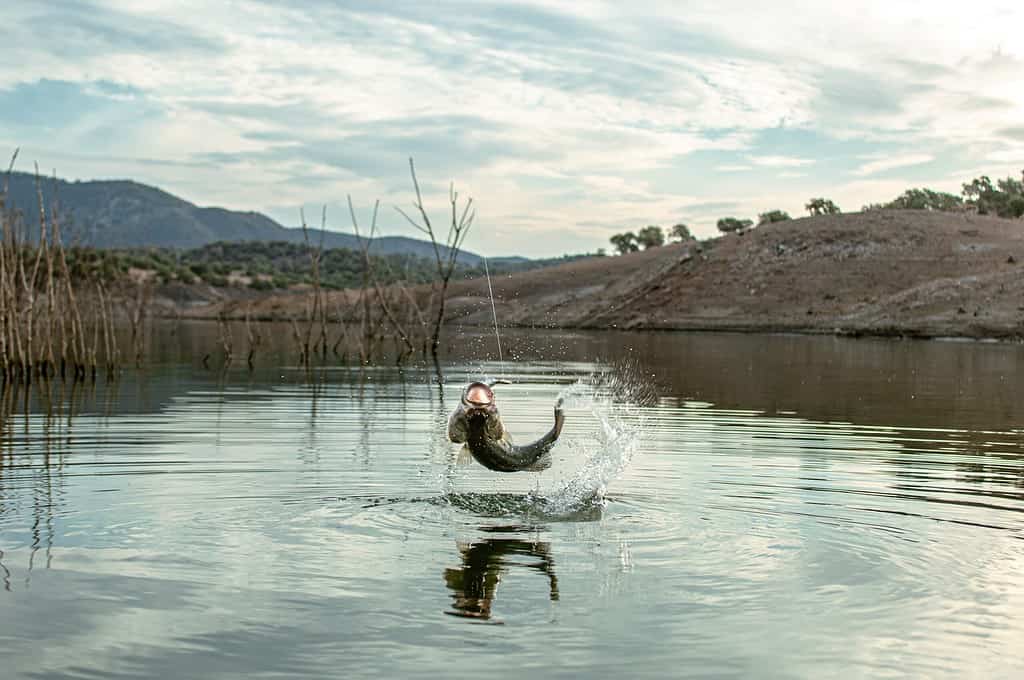
If you’re an angler, you’ll likely want to encourage bass to jump or come to the surface, not just for the spectacular sight but also to increase your chances of making a catch.
While you can’t control the natural behavior of the fish, there are several proven techniques you can use to entice them towards the surface.
Topwater Lures
One of the most effective ways to entice bass to the surface is by using topwater lures.
These are specially designed to imitate prey that bass love, like frogs, insects, or small water birds. When retrieved properly, topwater lures create a disturbance on the water’s surface, mimicking the movements of larger fish or potential prey and catching the bass’s attention.
Feeding Time
Taking advantage of feeding times can also be beneficial.
As we’ve learned, bass are more likely to feed (and therefore jump) during the early morning or on sunny days. Scheduling your fishing trips around these times and using appropriate baits can encourage bass bite and more surface activity.
Remember, every day on the water can be different, and there’s no surefire way to make bass jump. However, by using these techniques and being patient, you can improve your chances of bringing those bass to the surface. The sight of a bass leaping out of the water never gets old, and with these tips, you’re sure to witness this fascinating behavior more often.





 Facebook
Facebook YouTube
YouTube